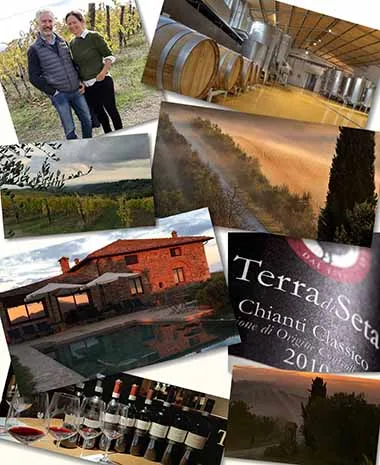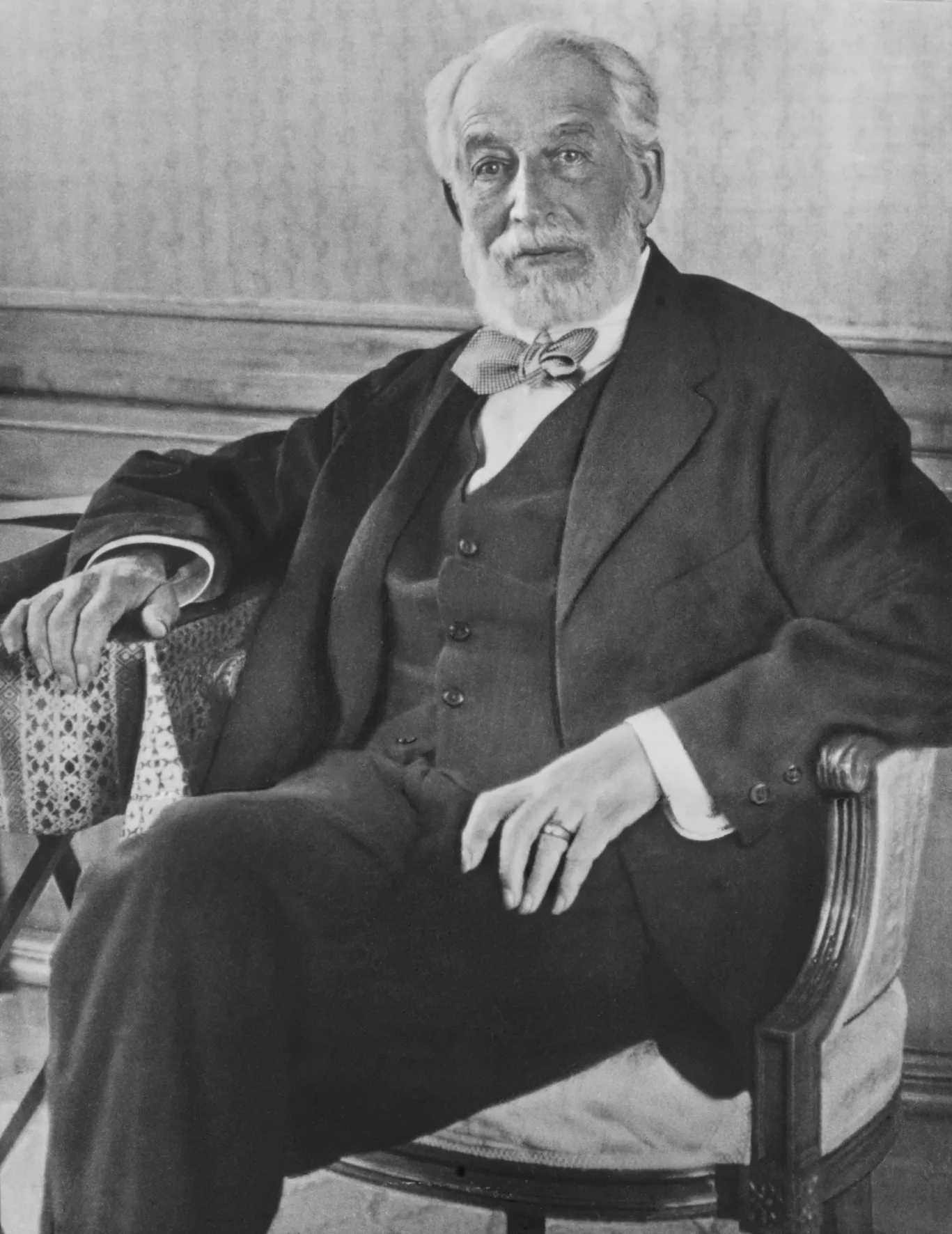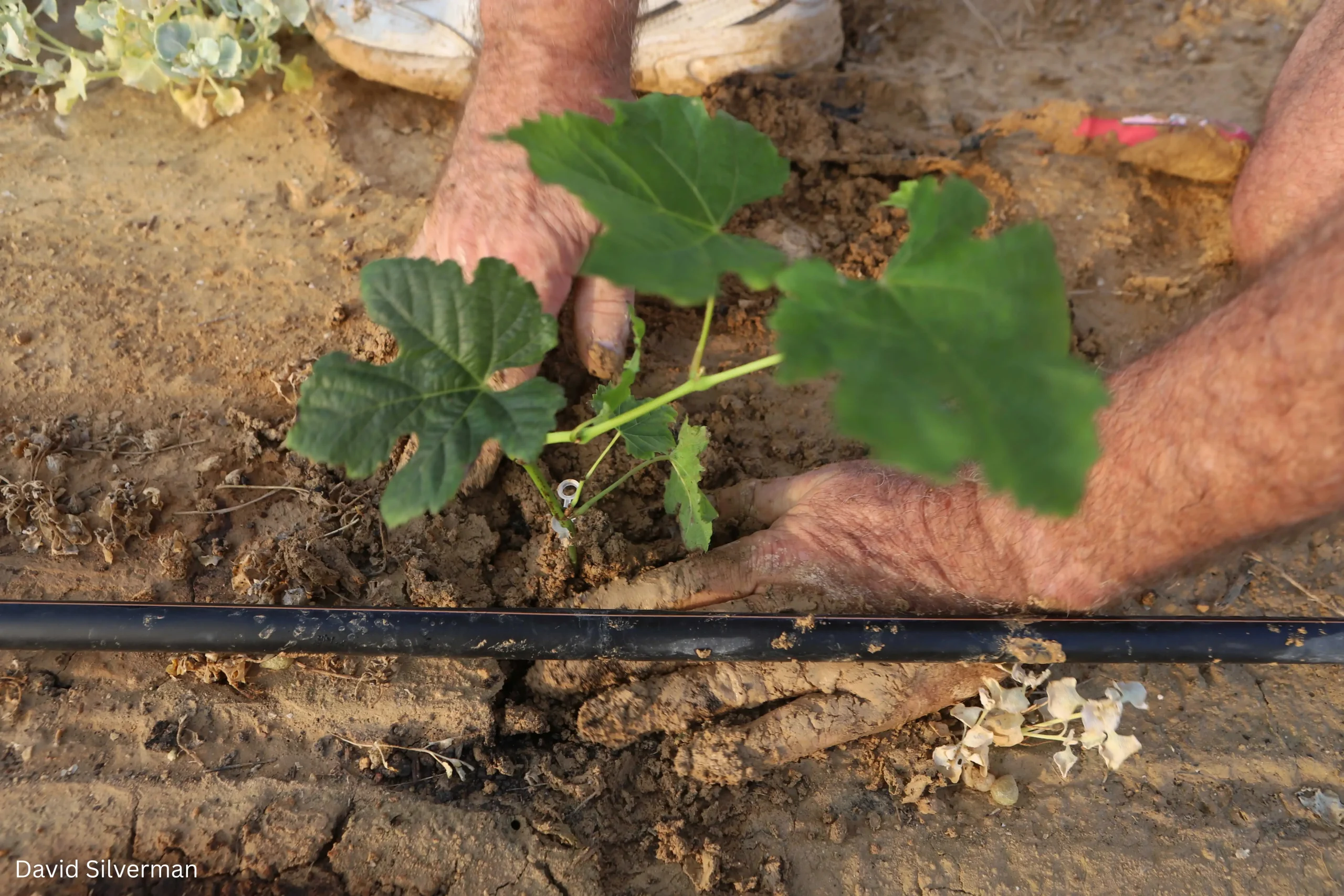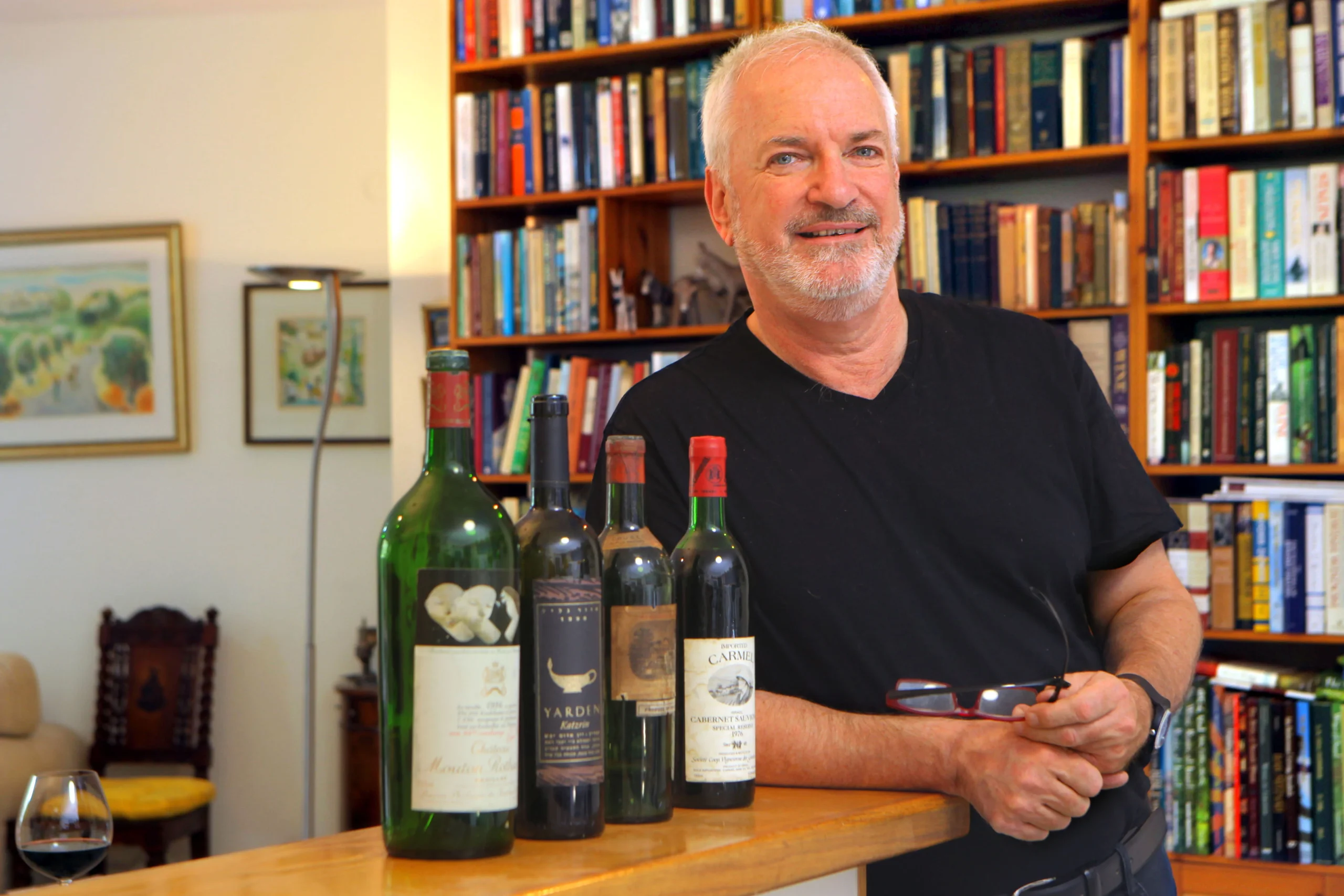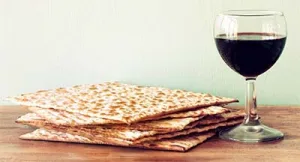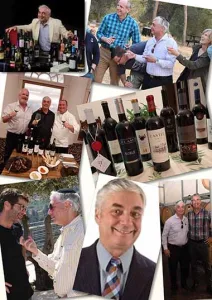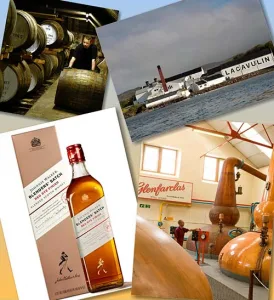Literally, a marriage made in heaven. She led him to wine. He led her to the Jewish world of Kashrut. This is a story about land, a family, wine and food, not rare in Tuscany, but with a Jewish undertone, which is virtually unique. Tuscany, situated in the center of Italy, has one foot in heaven. It is such a beautiful area of old stone buildings, forests, hills, valleys, shrouded in deep mists, with a smorgasbord of vineyards, olive groves, decorated with slim upright, optimistic looking Cypress trees. If anyone wants to compliment a region in Israel, they refer to it grandly as the ‘Tuscany of Israel.’ They also have a long wine history. In Israel, we are impressed that Carmel goes back 130 years and the winemaking Shor family 170 years. Well, they are babies.
The iconic Antinori and Frescobaldi Tuscan family wineries go back to the 14th century!
When I began in the drinks industry, the Tuscan wines were not the best. Chianti, Italy’s most famous wine alongside Barolo, was sold in a fiasco. This was a bulbous, round bottomed bottle sitting in a straw basket surround. It was not in those days associated with quality, but more with thin, acidic wines. They were great for creating lamps, or for making displays in restaurants, but the wine was not the best.
In the last 40 years, since the planting of vines on the Golan Heights, Israeli wine has gone through a revolution. The wine industry is unrecognizable from what it was previously. I believe the changes in Tuscany and the Chianti region in particular, have been no less dramatic. The advent of Super Tuscan wines and a new search for quality and reappraisal of the identity of the Sangiovese grape, have elevated the whole region to a new place in the parthenon of great wines.
My family, the Montefiores, also came from the Tuscany, before immigrating to England in search of better economic prospects. My famous forbear, Sir Moses Montefiore was born in Livorno. I don’t know if this influenced him sub consciously, but he drank a bottle of wine a day and lived to his 101st year. There must be a moral in there somewhere!
The ‘She’ in this story, is Maria Pellegrini. She is a third generation winemaker. Her father and grandfather made wine in the Morellino di Scansano region of south west Tuscany. She has her feet deep in the Tuscan culture of family, food and wine, which are interwoven and inseparable. Her family were also restaurateurs and sommeliers. In her case, the apple did not fall far from the tree.
The ‘He’ is Daniele Della Seta. He is an academic, a tall cerebral character with a noble patrician look. He was a Biology Professor, increasingly frustrated by the lack of funding for research. The Della Setas are an ancient family with deep roots in the Jewish community of Rome.
The catalyst for their new life in dreamland was when Daniele was posted to the University of Siena. Touching base with Tuscany inspired them to search for la dolce vita. They bought a small estate in the Castelnuovo Berardenga, which falls in the southern part of the Chianti Classico region. It was a 400 year old organic farm set on a hill at 500 meters above sea level, not far from the beautiful city of Siena. In one of those curious coincidences of fate, when his Uncle visited, he immediately said “I know this place.” It turned he was hidden in the very same building, as young Jewish child, during the Second World War!
The estate had 40 hectares of grapes. Initially they sold the grapes, to other wineries. In 2007 they made wine and in 2008 decided to convert the building used by the previous owner for breeding rabbits, into a modern winery. There are no lack of wineries in Tuscany. They all have the same long history of family and share the new search for quality. All are part of the new revitalized Tuscany. Danele’s and Maria’s farm was already organic and so they decided to go kosher to give themselves a niche market.
They called the winery Terra di Seta. Terra means soil and Seta, the family name, means silk. As well as producing kosher wine, olive oil and honey, they run a strictly kosher kitchen and offer accommodation in the fine tradition of Italian agritourism. This is tourism with a difference, because they specialize in kosher tourism, but you don’t have to be Jewish to be stunned by the beauty of the place or to appreciate the quality of the wines.
In truth there are great French, Spanish, French, Californian and Israeli kosher wines, but Italy has always been lacking at the top end. Of course, in terms of sales the Italian produced Bartenura Moscato beats all comers, but apart from Ricardo Cotarella’s kosher cuvées, Italy has been a desert of kosher wines of real quality.
To become Kosher is no mean feat in a place with few Jews and without a Kosher infrastructure. That they have succeeded is due to Daniele’s Jewish pride and his and Maria’s determination to go the whole hog. This is a couple not used to doing things by half measures. Daniele’s sister lives in Israel. In 2007 he decided to tour Israel wine country, visiting the Golan Heights Winery and Domaine du Castel. He brought in the kosher authorities to guide him and the journey from rabbits to rabbis was complete.
Astonishingly, considering how much kosher wine is made, there are only three wholly kosher wineries in Europe. These are Clos Mesorah in Montsant, Spain, and Cantina Guliano & Terra di Seta in Tuscany. Terra di Seta is the largest of the three, but still remains in our terms a boutique winery. It is also an estate winery, growing all their own grapes. Their goal is to produce a Chianti with quality and typicity, to show Sangiovese as it should be, with all its points and edges, and to make wine that just happens to be kosher.
You drive up a narrow gravel lane into a forest where oak trees abound. In no time you arrive at an estate with stone buildings, a panoramic amphitheater of vines, and an olive grove. Tuscany is always stunningly beautiful. At every moment of the day, it has its own unique light and shade. I wandered around the vineyards with a southern exposure and was shown the characteristic Galestro and Alberese rocky soils. I noticed the heavy work going on to prepare the land for new plantings. I saw the new fence put up by necessity, to keep the deer and wild boar out. They love gorging on the ripe Sangiovese grapes. One year they decimated the crop. Wandering through the olive grove I met a horse, which turned to look at me lugubriously, as if to say “This is my home. What are you doing here?” By the side of the path were wild Mediterranean herbs. Rosemary and lavender lined the path. The lemon trees have been moved to survive the winter.
They were line up like soldiers in pots, waiting to be replanted in the spring.
The winery, which you can peer at through a glass partition, is very state-of-the-art. Daniele explained to me that necessity is the mother of invention. They have pioneered new technology in search of ways to reduce any problematic effects of the kosher restrictions. In most countries in Europe, kosher wine is made in regular wineries. Barrel bungs and stainless steel tanks are protected by reams of masking tape indicating that this a ‘no touch’ area. Producers of masking tape must love kosher wineries. Signs scream ‘Kosher Don’t Touch!’. At Terra di Seta all is different. The winery is under lock and key. Paradoxically, the only sign outside the winery, announced ‘Not Kosher’ for an experimental Sangiovese being fermented in an open top barrel.
We finished wandering about the estate, and then in a jiffy, with no fanfare or bells, Maria had prepared a beautifully presented Tuscan lunch, which was basic, yet stylish and wonderful. For her, cooking is like breathing. Tuscan cuisine is peasant food. Simple, nourishing and only using local ingredients. The tomatoes and herbs were picked from the garden the second before use. The pasta was home made by Maria. The bread was baked that same morning by Daniele. The olive oil you drizzle on it comes from the olive grove alongside the vineyard, from four different varieties. I love olive oil, but I have never had the experience of using an olive oil made from olive groves I had walked through minutes earlier. And so on. Everything is domestic and homemade. When you say local and you are referring not to Tuscany, but this particular estate. Not only is the experience authentically Tuscan, but everything is made strictly according to Kashrut. Their accommodation has a dreamy swimming pool overlooking the vines. So, the Kosher wine lover can also visit Tuscany, eat, sleep and drink wine like a king.
What is not hands on is the winemaking. Here the Mashgiach or religious supervisor is essential to Daniele. He needs to touch and feel the wine through the hands of his helpers. I met Ian Schnarl, an American Israeli, with a long history in wine. He worked with legendary winemaker Peter Stern at the Herzog Wine Cellars back in the 1990’s. We reminisced about wines like the Yarden Cabernet Sauvignon 1984 and 1985 and the award winning Herzog varietals from those days. There are not so many people around I can talk to who share these memories. Amusing that the place I did so, was not in California or Israel, but in Chiantishire!
Daniele is the one involved in the winery. He says his scientific background definitely helps. Maria takes responsibility for the vineyards, where vineyard activity is rigorously managed. All is organically grown and they use the services of a well-known organic specialist as consultant.
The winemaker is the well-known Enrico Paternoster. He is in charge of the winery and the Agricultural Institute of San Michele all’Adige, the most important Italian wine school and wine research center. His involvement also shows the seriousness of the endeavor.
A few words on Chianti Classico. It is designated area, basically between Florence and Siena which has roots going back to 1716. The wines these days must have a minimum of 80% Sangiovese and a maximum of 20% local or international varieties. The Anata is aged for a minimum of 12 months. The Riserva must be aged for a minimum of 24 months. The Gran Selezione must be aged for a minimum of 30 months. The Black Rooster logo usually on the neck on the bottle or back label, represents the approved authenticity as a Chianti Classico.
Terra di Seta have a stylish new tasting room, which will in time overlook the barrel room. The Terra di Seta Meshi 2018 is a lovely rose. Fruity, with a backbone of minerality and good acidity. The word Meshi means silk in Hebrew. This is the meaning of the family name.
The regular Chianti Classico 2017 is basic, but for me it was very enjoyable and great with food. It has a sour cherry berry aroma, and that great Sangiovese angular acidity. Bright, lively and not soft, but very refreshing. A perfect drinking wine and good value too.
The Chianti Classico Riserva 2015 is bright, elegant and with a clean finish. It has the cherry, fresh berry aromas with a delicate herbal background. Walking around one good understand where the undertone of herbs comes from. The Assai Gran Selzione 2015 is bigger, rounder than the other wines tasted. It has good fruit, with a spicyness, earthy flavors and a long complex, well balanced finish. Certainly a classy wine. All the wines showed typical characteristics of the region. What delighted me was not just the quality, but the respect for the Sangiovese grape. These were not wines masked with new oak in a new world style.
Daniele and Maria may be living the dream, but they work very hard to do so, and to be organic and kosher are by no means the easiest routes. Tuscany represents not only history, art and landscape, but also food and wine, and a way of life. If you don’t believe me, take a visit to Terra di Seta.
Wine trade veteran Adam Montefiore has advanced Israeli wine for over thirty years. He is the wine writer of the Jerusalem Post. www.adammontefiore.com


